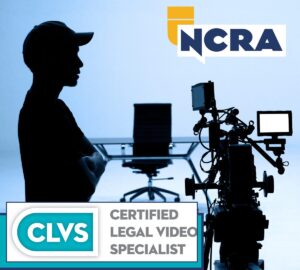I was gifted with several ‘older’ versions of our JCR. The magazines do not list JCR on the cover, as it is now called. Each cover lists National Shorthand Reporter in all caps.
The year was 1978. Our organization was called the National Shorthand Reporters Association. Richard E. Peppey of Wisconsin was NSRA president. Mary Louise Gilman was editor. One very specific detail stood out within each issue. The “Classifieds” listed both “Reporters Wanted” and “Positions Wanted,” as well as a number of miscellaneous other ads.
Almost all of the “Positions Wanted” ads began: Female Machine Writer, Male Graduate, Male Machine Writer, Young Male Reporter, Young Female Reporter, Female Reporter, and Experienced Female Writer (with detailed descriptions). A handful of listings began their paid classified ad with “Machine Writer” and “Experienced Machine Writer.” Yet even the small percentage of ads seeking work that began with “Machine Writer” and “Experienced Machine Writer” included the word “male” or “female” in their description.
The “Reporters Wanted” ads were listed alphabetically under “officialships” and then “freelance firms,” and, in contrast to the “Positions Wanted” ads, not one of the ads seeking reporters used the word “female” or “male.”
I found the classifieds ads to be a fascinating window into our world from whence we have come.
I remember when I would appear with my steno machine, and individuals “did not want a girl.” It was stated loudly. No one was discreet, if that was an issue then. When pressed for a reason (not by moi), almost all — yes, males — stated they “did not want to say cuss words with a girl.”
Often, I was asked if I had “heard cuss words before, could write them, and would write cussing as it was spoken, quoted, and repeated.” I kid you not.
This happened often enough that when asked, I replied succinctly, “I was raised with three brothers.” Almost everyone would say, “Oh! Okay. Okay.” That seemed to make a difference to almost every individual.
I worked not to roll my eyes or exhale audible sighs. That was then, and that was acceptable then.
Yet reading ads within our national professional magazine was a glance back to what was acceptable. I do not know what year this changed. Perhaps someone who does know might write to our JCR.
Long ago, I remember meeting retired court reporters. Many continued to attend national conventions. I remember watching — almost a private ‘club-sphere’ — where reporters and spouses, our retired leaders, sat together and dined together at large tables. Boisterous laughter was often heard.
I waited for a moment to introduce myself to many as I had read their articles or heard about many of the retired reporters so often. What a thrill it was to me as a reporter. Oh, I enjoyed listening to their stories. Al Weinstein was very special. I dedicated my CSR, RPR, RMR Written Knowledge Test Court Reporter Reference Workbook to Abraham Al Weinstein, RPR, parliamentary verbatim reporter for the United Nations, for his mentoring and advice. Years later, when I stood online to speak to Al at a national convention and reintroduced myself to Al Weinstein, he did not remember me (not at all), and he asked, “Did I help you?”
I gasped, “You changed my life!” Tears in his eyes, Al asked me to write about it “so others would do the same.” He said, “I still don’t remember you. You will write about it, yes? We can be friends now; come sit. Do you need tickets to anything?” Following Al’s request, I wrote an article for this column, which was published just after his death in the July 1999 special collector’s edition of the JCR.
“Then Al Weinstein asked, ‘Did I help you?’ Chief Reporter, United Nations” is listed on www.monettebenoit.com (posted April 16, 2007) and on websites.
Robert Clark, RPR, NCRA librarian historian, was also a mentor and friend. His wife, Coreen, was a ballet dancer during San Francisco’s 1920s flapper and prohibition era. Oh, I loved listening to them as we sipped cocktails, usually Manhattans, during NCRA evening functions. I dedicated my vocabulary workbook to Robert. He had the best stories about the origins of our profession, and he shared many moments as we sat huddled together in crowded banquet rooms.
Mary Knapp, RPR, reported congressional records when females were truly not accepted — with her court reporting husband — as I remember her sharing with me. Mary Knapp was a leader in our field, opening schools, writing books, and assisting several generations to enter our field before she retired from Alvin Community College in Texas.
I first met Mary Knapp at an NCRA convention. Two large banquet rooms were standing room only.
I approached one open double-door area out of sheer curiosity and stood on tip toes, approximately five rows of people back into the hallway. Mary Knapp, a petite woman, had full command of the room. I could hear laughter, applause, oohs, and ahhs. I waited (standing in a very long line) to introduce myself and to ask for a copy of her handouts, which had run out early in her seminar.
When we became friends, I loved listening to her stories, to her adventures “as a woman back then.” I dedicated a book to Mary Knapp, too, and treasure the notes she mailed me with her thoughts, jokes, advice, and private opinions.
I truly feel I have sat at the feet of the masters, listening, learning, and laughing. So many leaders prepared this profession for where we are now. They developed the clarity and vision to encourage us as we enrolled in court reporting school, graduated, and entered this grand profession.
Yet the listing of “female” and “male” only in the “positions wanted” section by court reporters seeking work is truly — my private term — “a head-scratcher” for me in our national magazine.
I remember when individuals did not want “women” on the road. There were no cell phones. “Who knows what could happen? It’s safer to send a male, and that’s what was requested.” Okay. And I was not assigned to jobs if they were going to run into the evening.
Women and men now share talents, gifts, and skills 24/7 with superior state-of-the-art technology.
I had a great aunt who was born during the horse-and-buggy era; she lived to see a man walk on the moon. I often think of her and other individuals, to include retired reporters, who witnessed such adventures.
When we look down the road to our future, to journeys yet to be traveled, perhaps we can all agree that no one will publicly request a job wherein they include “male” or “female” in the description. And yes, we know there are now laws that forbid specific questions during interviews.
As we move forward with clarity — as did our leaders in the past — into new visions and new arenas, and as new trained reporters join our profession, I wonder when JCR issues of our National Court Reporters Association are read 34 years down the road (as I read 1978 in 2012), what will court reporters find to be unique in 2046? In 34 years, what will remain “a standard”?
My opinion is that we will continue to be keepers of the record, preserving truth and history. We will continue to raise standards sharing our disciplined skills. We will continue to have fun, experiencing wonderful adventures, as we best ourselves into the future.
Thank you to the reporters who are now our leaders and to the retired reporters who continue to attend conventions. We have benefited from your seeding, your words, and your wisdom. Truly. I wish each of you — students, instructors, working reporters, CART providers, captioners, and retired and associate members — a special, blessed holiday season.








